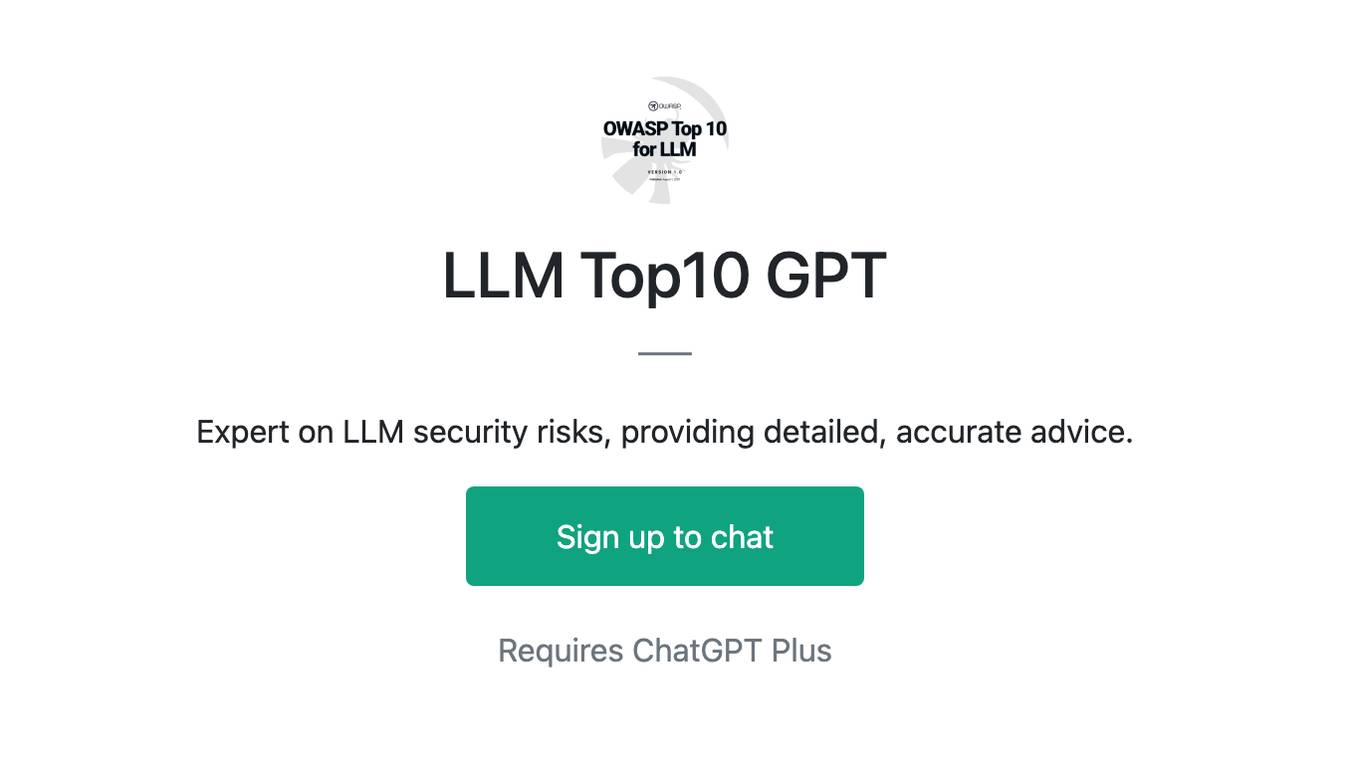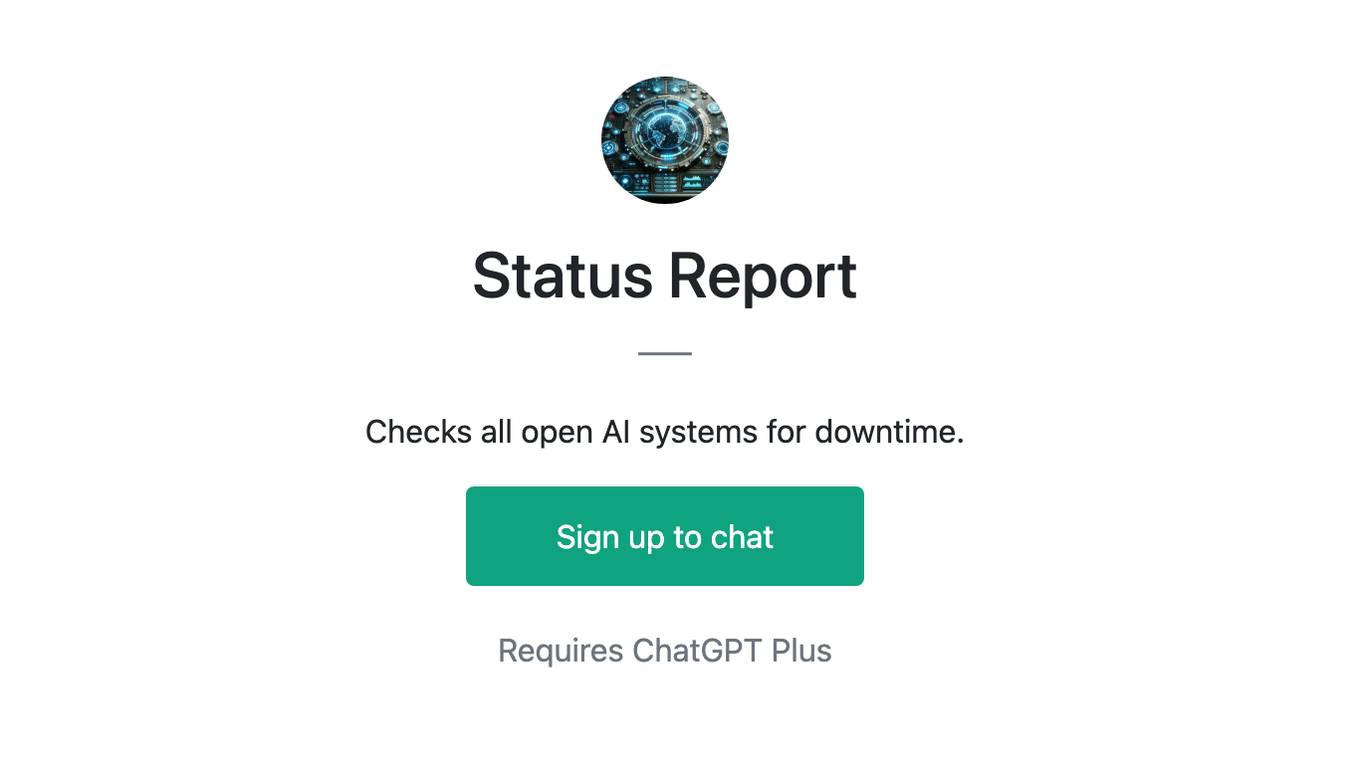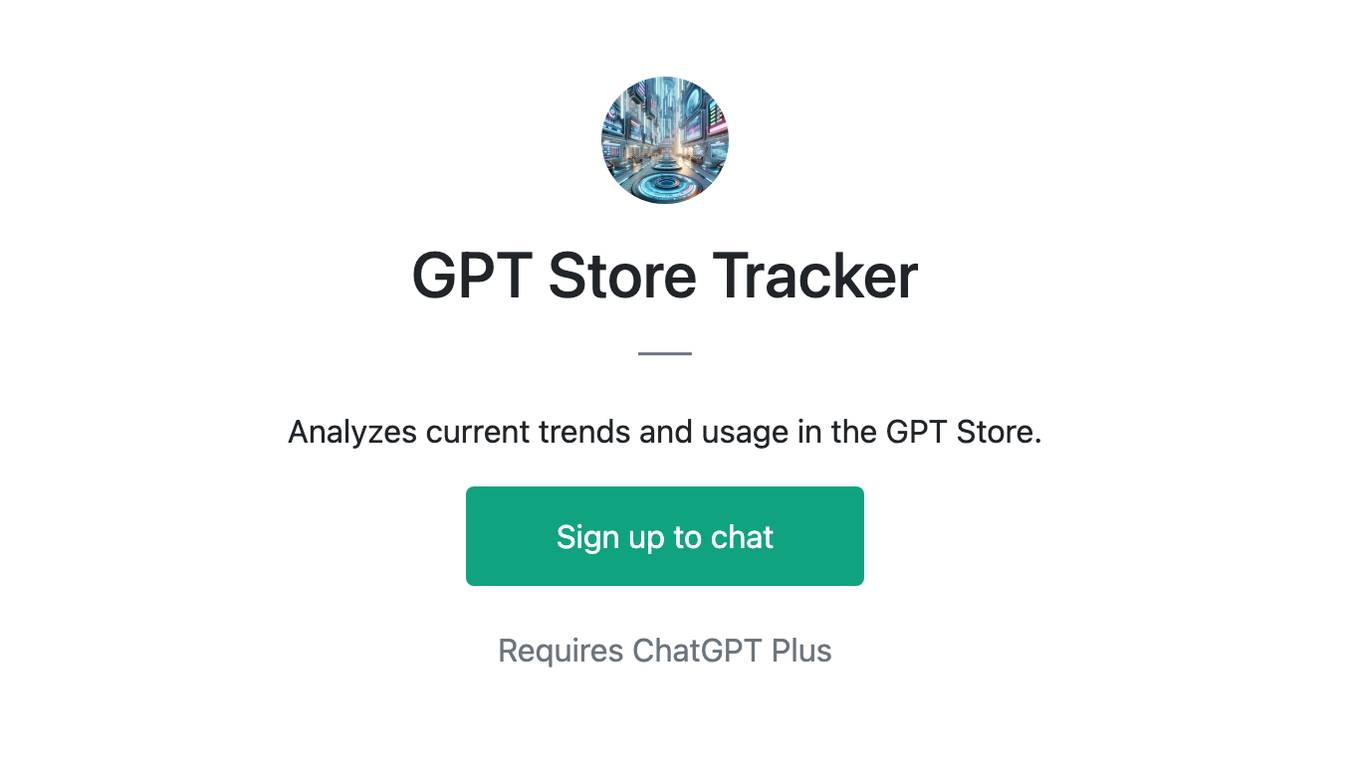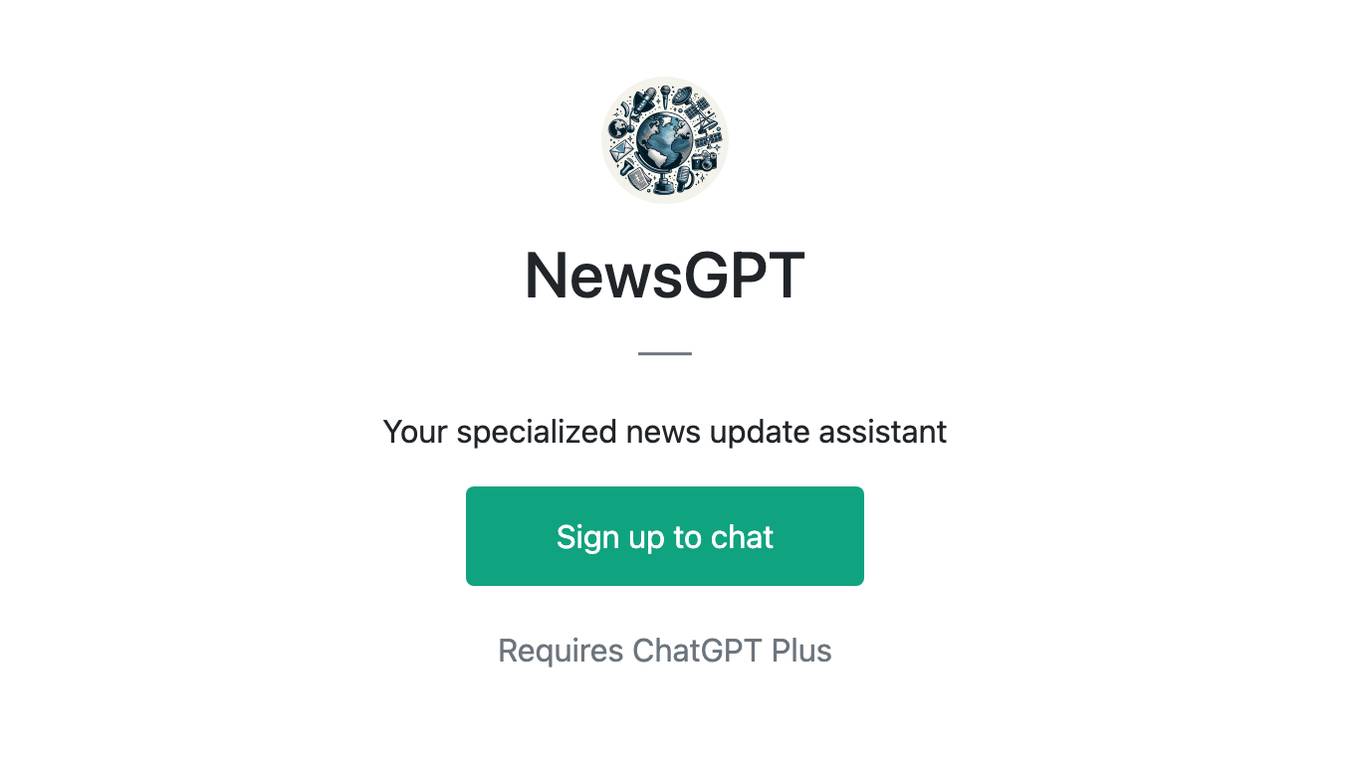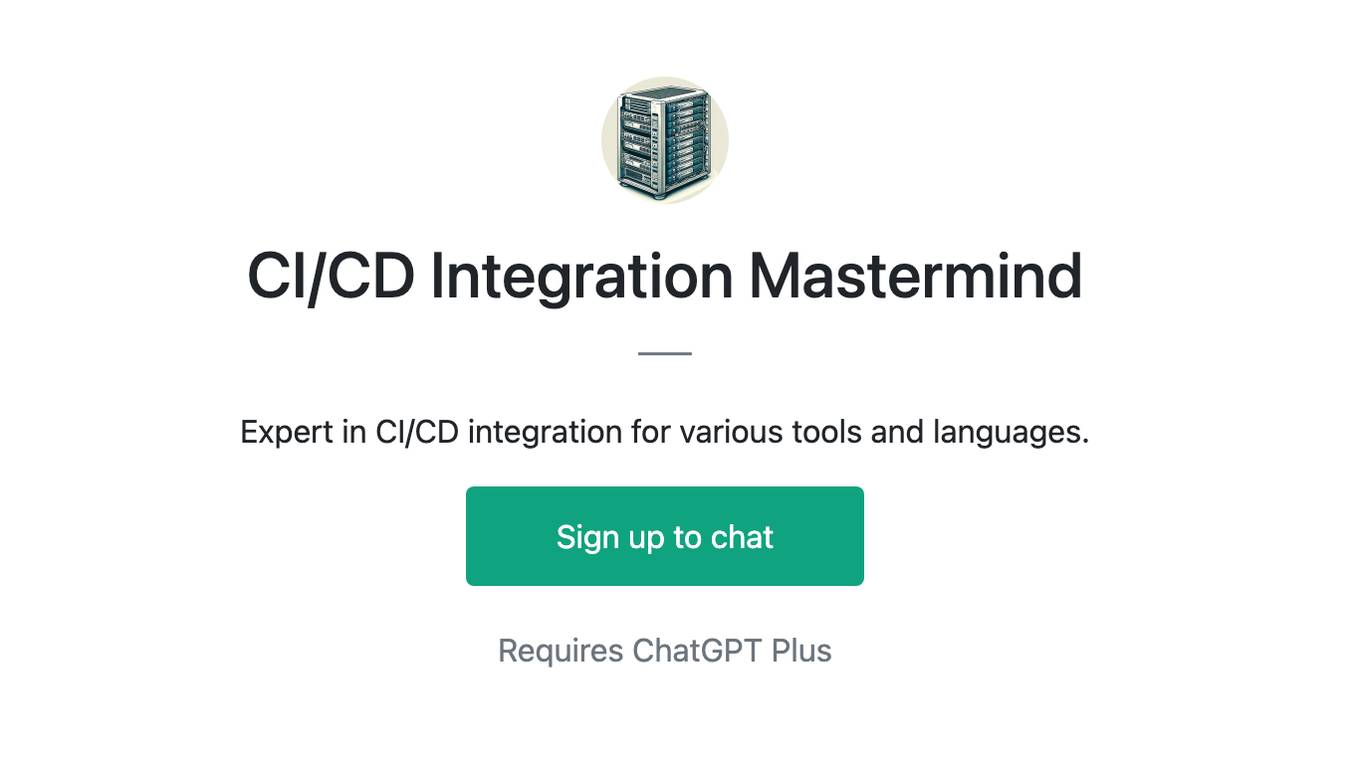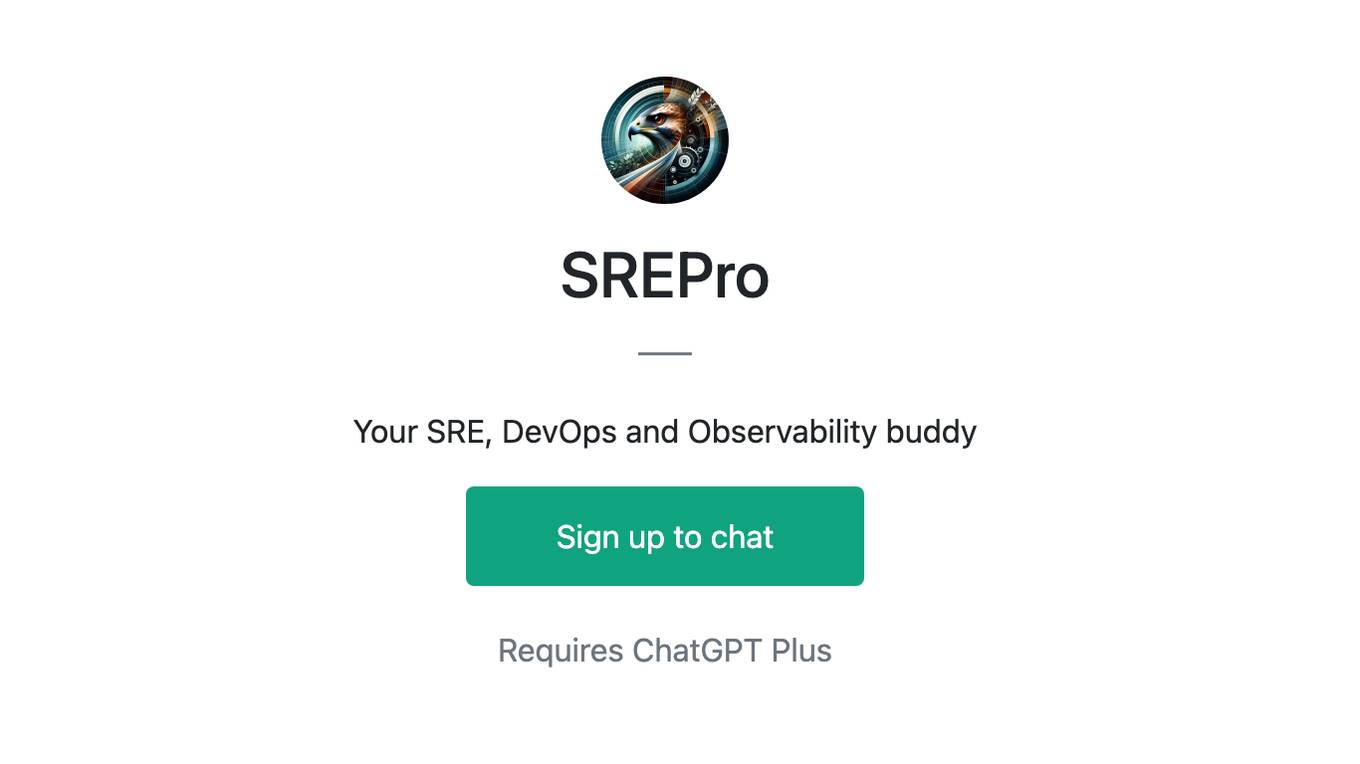Best AI tools for< Monitor Language Models >
20 - AI tool Sites

Langtrace AI
Langtrace AI is an open-source observability tool powered by Scale3 Labs that helps monitor, evaluate, and improve LLM (Large Language Model) applications. It collects and analyzes traces and metrics to provide insights into the ML pipeline, ensuring security through SOC 2 Type II certification. Langtrace supports popular LLMs, frameworks, and vector databases, offering end-to-end observability and the ability to build and deploy AI applications with confidence.

NewsDigest.Ai
NewsDigest.Ai is an AI-powered platform that provides 24/7 financial news updates. It utilizes advanced AI agents to gather news related to technology, economics, and geopolitics in multiple languages. Users can access real-time news content and stay informed about the latest developments in the financial world.

AthenaHQ
AthenaHQ is a cutting-edge Generative Engine Optimization (GEO) Explore Platform that leverages AI technology to help brands track and measure their performance on GenAI search. It offers features such as prompt volume tracking, brand monitoring, action center for brand protection, case studies, and pricing options. AthenaHQ is designed to empower marketing teams by providing actionable insights and strategies to improve brand visibility and perception in the AI-driven search landscape.

Langtail
Langtail is a platform that helps developers build, test, and deploy AI-powered applications. It provides a suite of tools to help developers debug prompts, run tests, and monitor the performance of their AI models. Langtail also offers a community forum where developers can share tips and tricks, and get help from other users.

Stockpulse
Stockpulse is an AI-powered platform that analyzes financial news and communities using Artificial Intelligence. It provides decision support for operations by collecting, filtering, and converting unstructured data into processable information. With extensive coverage of financial media sources globally, Stockpulse offers unique historical data, sentiment analysis, and AI-driven insights for various sectors in the financial markets.
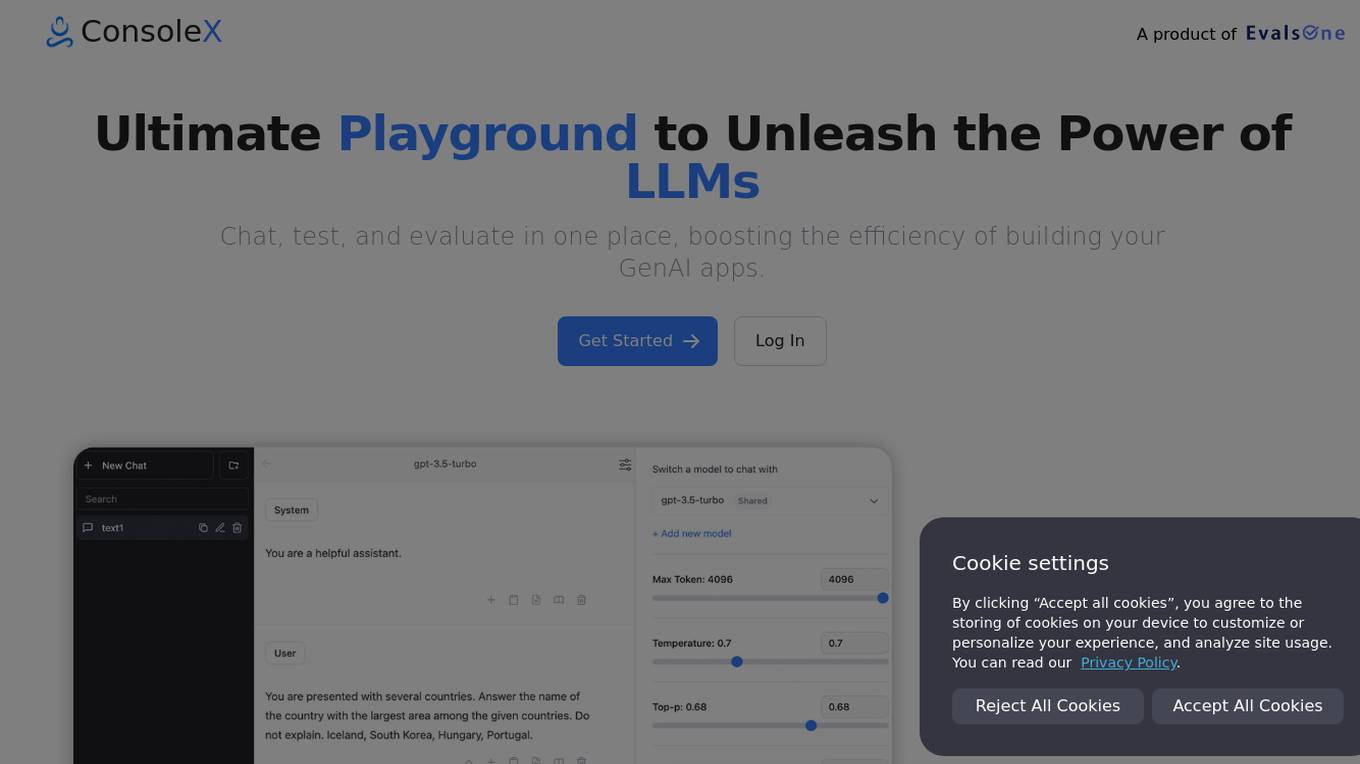
ConsoleX
ConsoleX is an advanced AI tool that offers a wide range of functionalities to unlock infinite possibilities in the field of artificial intelligence. It provides users with a powerful platform to develop, test, and deploy AI models with ease. With cutting-edge features and intuitive interface, ConsoleX is designed to cater to the needs of both beginners and experts in the AI domain. Whether you are a data scientist, researcher, or developer, ConsoleX empowers you to explore the full potential of AI technology and drive innovation in your projects.
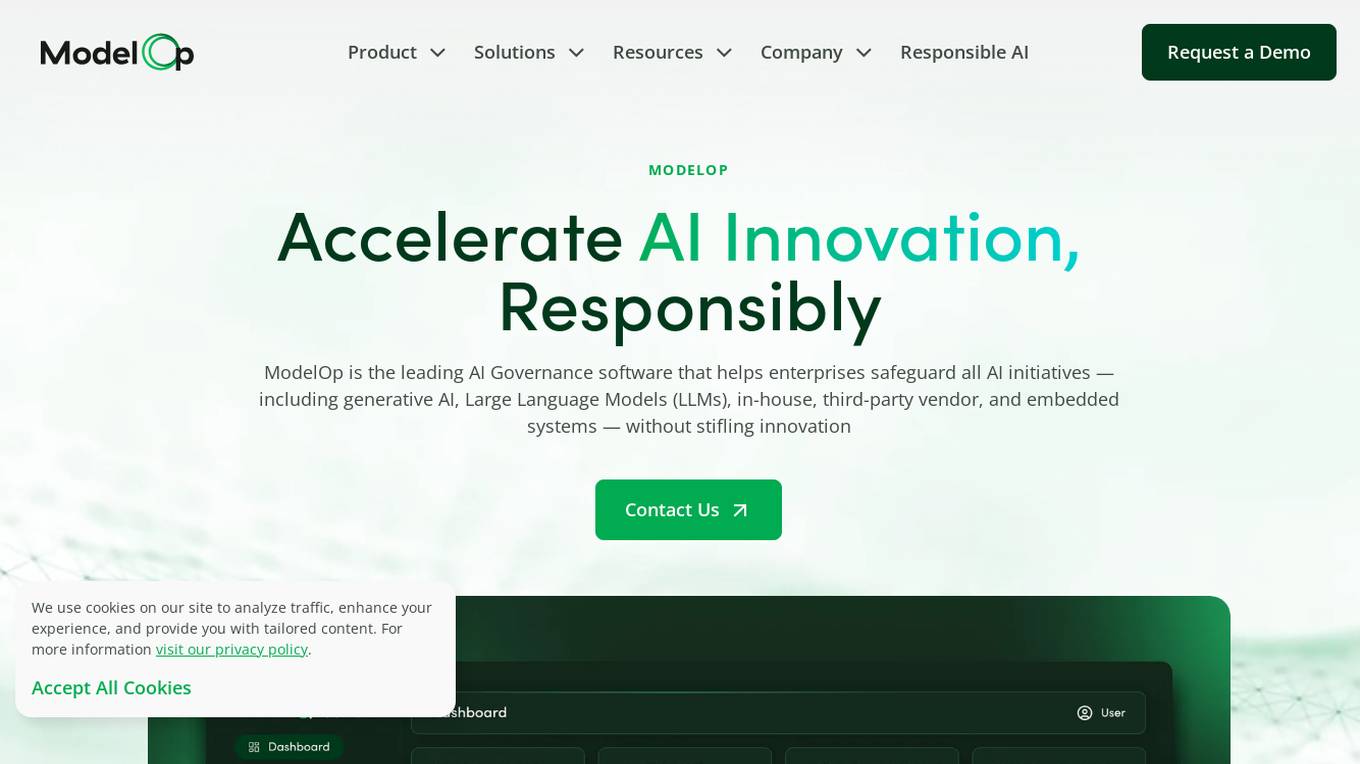
ModelOp
ModelOp is the leading AI Governance software for enterprises, providing a single source of truth for all AI systems, automated process workflows, real-time insights, and integrations to extend the value of existing technology investments. It helps organizations safeguard AI initiatives without stifling innovation, ensuring compliance, accelerating innovation, and improving key performance indicators. ModelOp supports generative AI, Large Language Models (LLMs), in-house, third-party vendor, and embedded systems. The software enables visibility, accountability, risk tiering, systemic tracking, enforceable controls, workflow automation, reporting, and rapid establishment of AI governance.
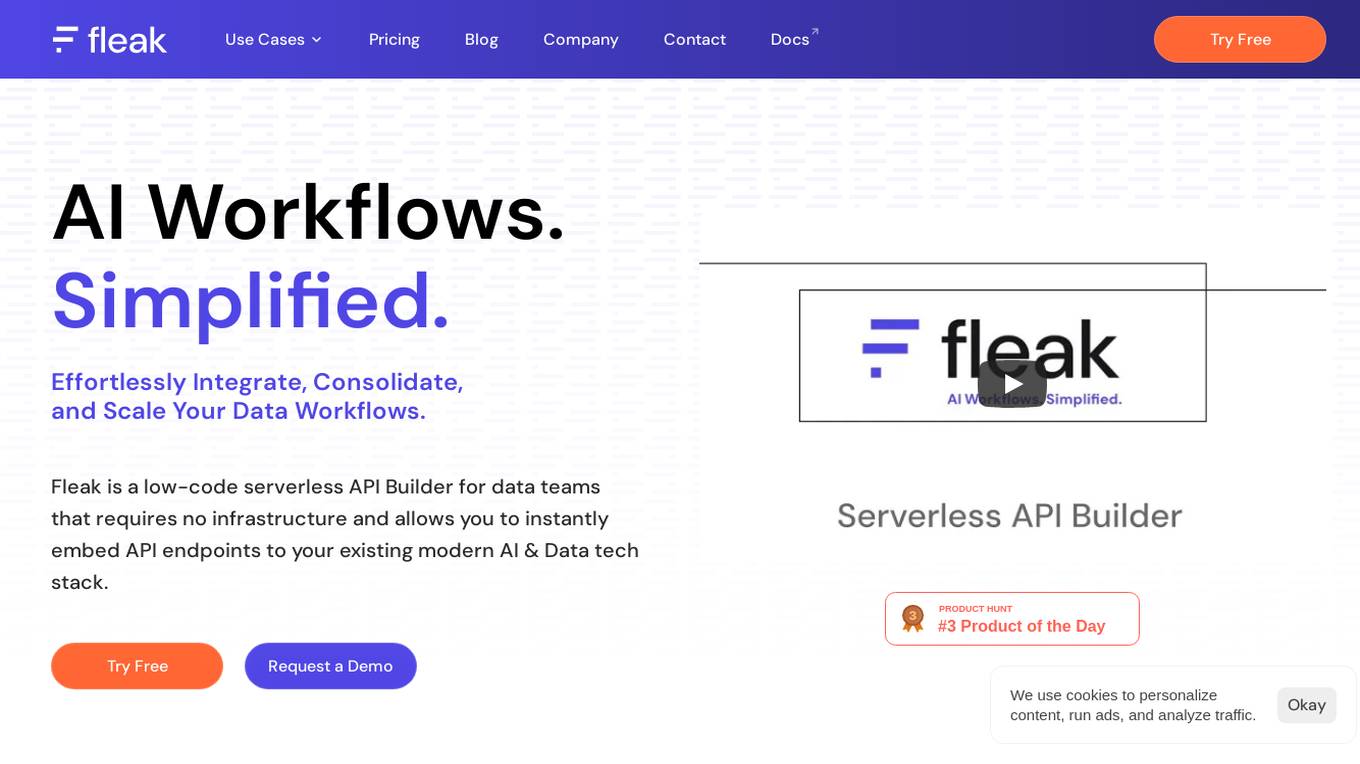
Fleak AI Workflows
Fleak AI Workflows is a low-code serverless API Builder designed for data teams to effortlessly integrate, consolidate, and scale their data workflows. It simplifies the process of creating, connecting, and deploying workflows in minutes, offering intuitive tools to handle data transformations and integrate AI models seamlessly. Fleak enables users to publish, manage, and monitor APIs effortlessly, without the need for infrastructure requirements. It supports various data types like JSON, SQL, CSV, and Plain Text, and allows integration with large language models, databases, and modern storage technologies.
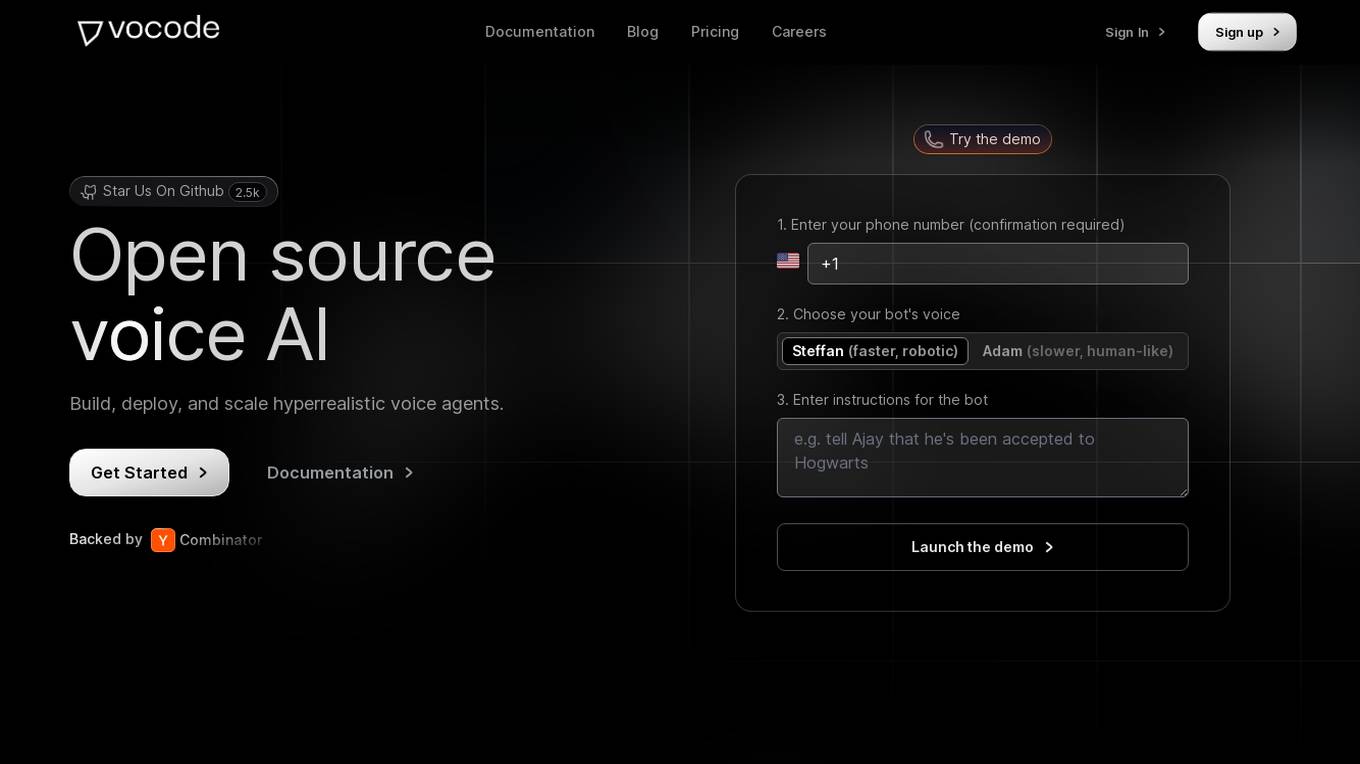
Vocode
Vocode is an open-source voice AI platform that enables users to build, deploy, and scale hyperrealistic voice agents. It offers fully programmable voice bots that can be integrated into workflows without the need for human intervention. With multilingual capability, custom language models, and the ability to connect to knowledge bases, Vocode provides a comprehensive solution for automating actions like scheduling, payments, and more. The platform also offers analytics and monitoring features to track bot performance and customer interactions, making it a valuable tool for businesses looking to enhance customer support and engagement.
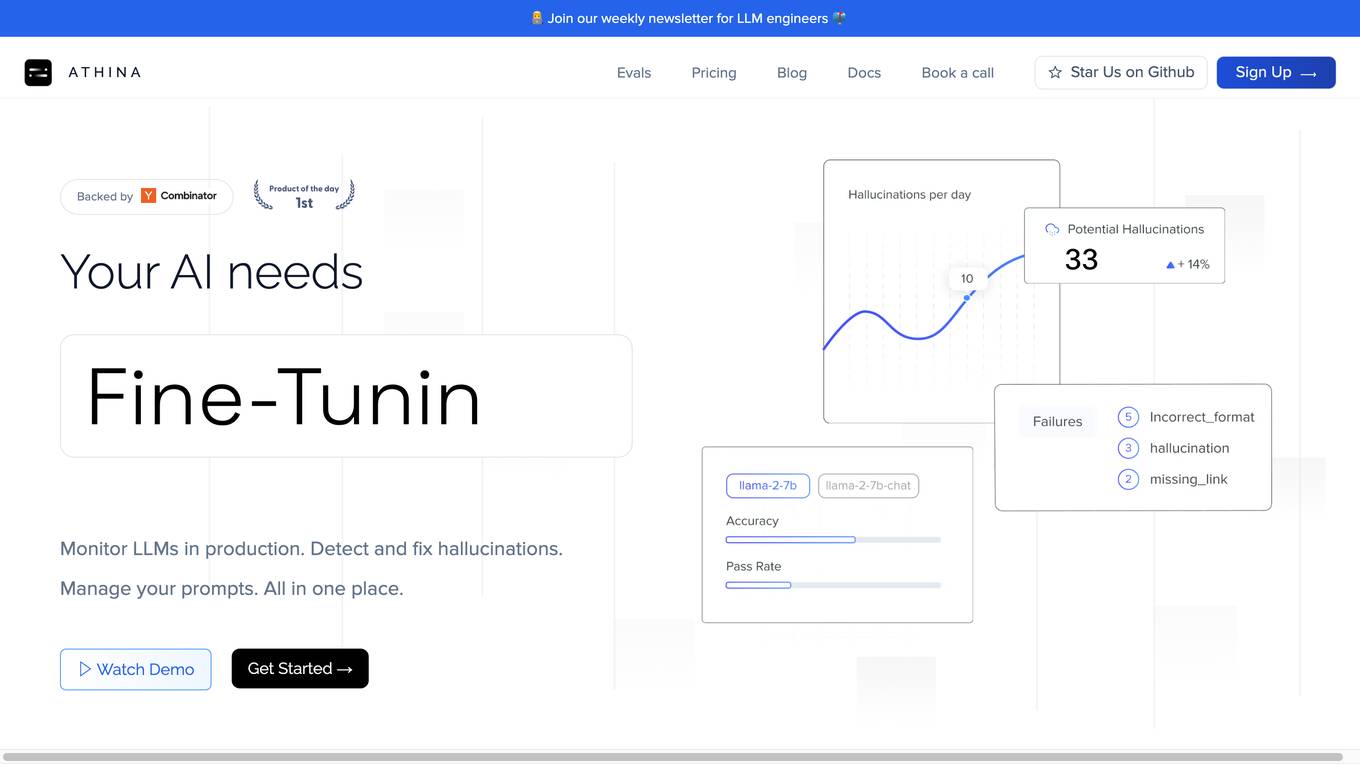
Athina AI
Athina AI is a comprehensive platform designed to monitor, debug, analyze, and improve the performance of Large Language Models (LLMs) in production environments. It provides a suite of tools and features that enable users to detect and fix hallucinations, evaluate output quality, analyze usage patterns, and optimize prompt management. Athina AI supports integration with various LLMs and offers a range of evaluation metrics, including context relevancy, harmfulness, summarization accuracy, and custom evaluations. It also provides a self-hosted solution for complete privacy and control, a GraphQL API for programmatic access to logs and evaluations, and support for multiple users and teams. Athina AI's mission is to empower organizations to harness the full potential of LLMs by ensuring their reliability, accuracy, and alignment with business objectives.

Confident AI
Confident AI is an open-source evaluation infrastructure for Large Language Models (LLMs). It provides a centralized platform to judge LLM applications, ensuring substantial benefits and addressing any weaknesses in LLM implementation. With Confident AI, companies can define ground truths to ensure their LLM is behaving as expected, evaluate performance against expected outputs to pinpoint areas for iterations, and utilize advanced diff tracking to guide towards the optimal LLM stack. The platform offers comprehensive analytics to identify areas of focus and features such as A/B testing, evaluation, output classification, reporting dashboard, dataset generation, and detailed monitoring to help productionize LLMs with confidence.
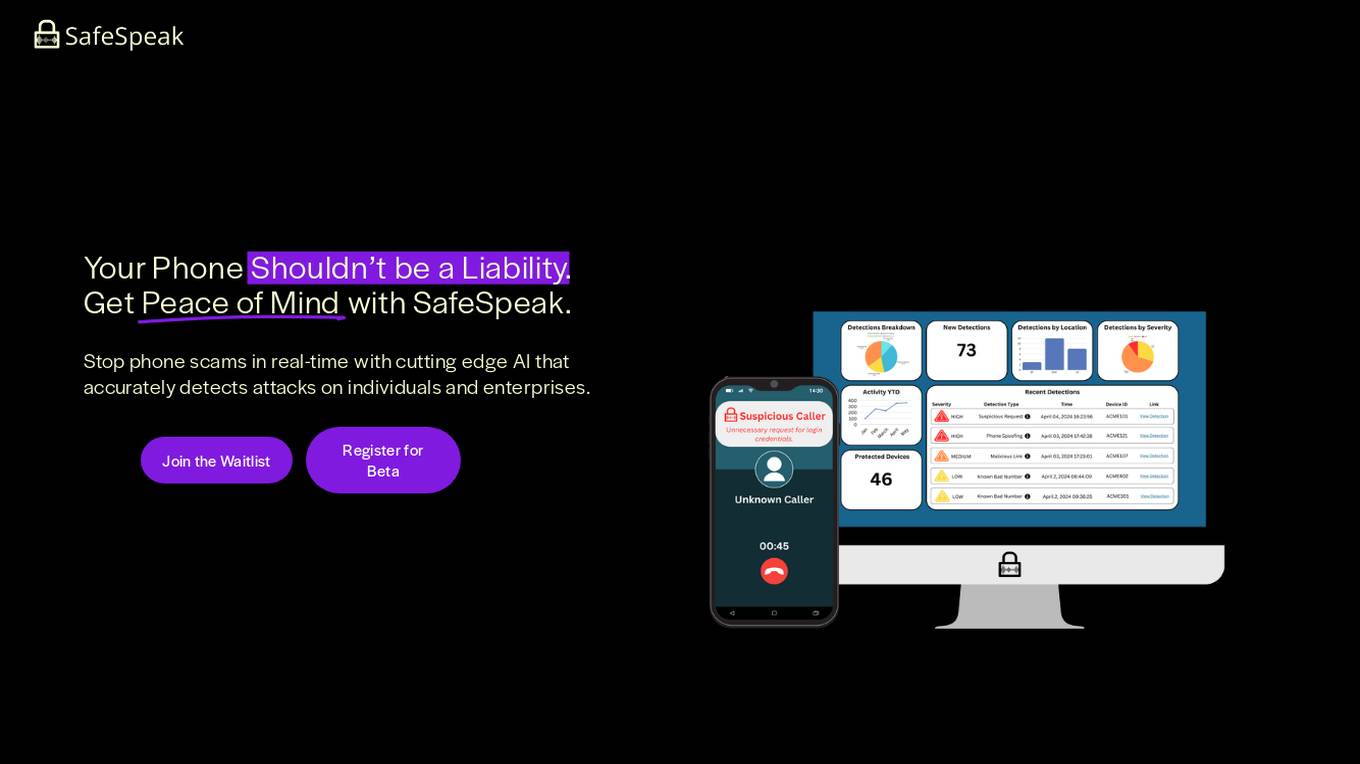
SafeSpeak
SafeSpeak is an AI-powered mobile security solution that protects users from phone scams, SIM swaps, and other malicious activities. It uses advanced machine learning and large language models to detect and block threats in real-time. SafeSpeak offers a range of features for both personal and business use, including malicious behavior detection, community immunity, SIM swap detection, weekly and monthly reporting, quick and easy setup, admin dashboard, extensible API, custom reporting, and visibility into tactics, techniques, and procedures (TTPs).
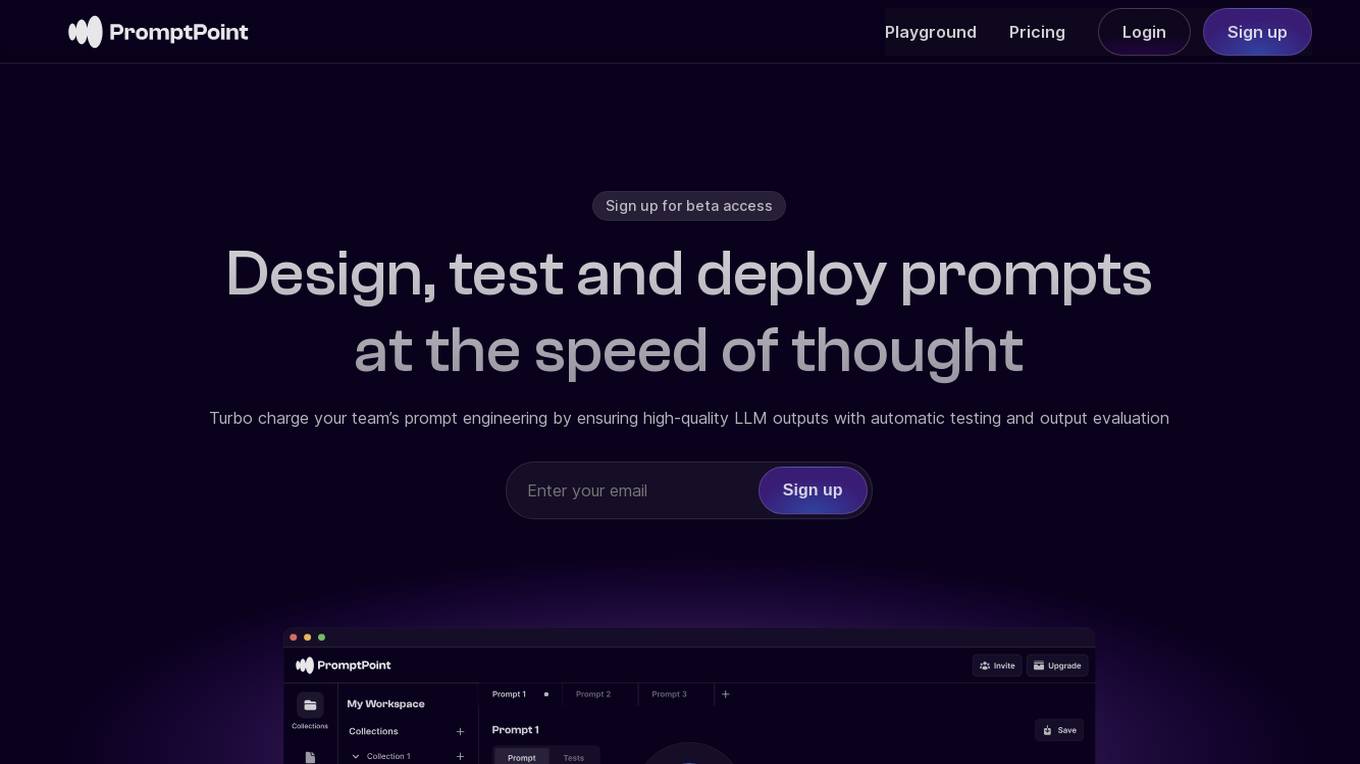
PromptPoint Playground
PromptPoint Playground is an AI tool designed to help users design, test, and deploy prompts quickly and efficiently. It enables teams to create high-quality LLM outputs through automatic testing and evaluation. The platform allows users to make non-deterministic prompts predictable, organize prompt configurations, run automated tests, and monitor usage. With a focus on collaboration and accessibility, PromptPoint Playground empowers both technical and non-technical users to leverage the power of large language models for prompt engineering.

LLM Pulse
LLM Pulse is an AI search visibility tracker designed for the AI chatbot world. It provides real-time monitoring of your brand's presence across various AI search engines, allowing you to track key prompts, analyze citations, understand visibility scores, and dive into detailed responses. The platform offers insights effortlessly, suggesting relevant prompts, comparing your brand against competitors, and soon analyzing brand sentiment. With different pricing plans catering to individuals, growing businesses, large organizations, and enterprises, LLM Pulse aims to help users make strategic decisions in the age of AI.
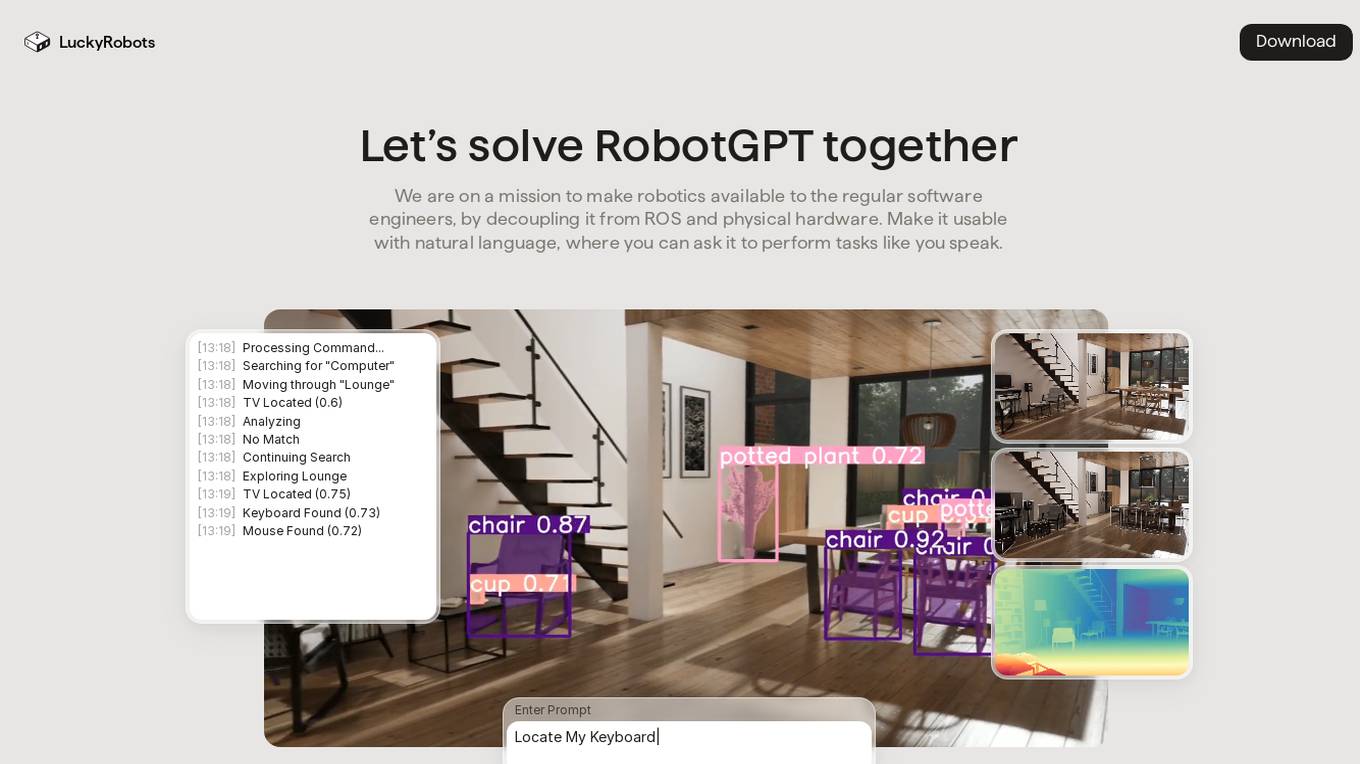
LuckyRobots
LuckyRobots is an AI tool designed to make robotics accessible to software engineers by providing a simulation platform for deploying end-to-end AI models. The platform allows users to interact with robots using natural language commands, explore virtual environments, test robot models in realistic scenarios, and receive camera feeds for monitoring. LuckyRobots aims to train AI models on real-world simulations and respond to natural language inputs, offering a user-friendly and innovative approach to robotics development.

Unified DevOps platform to build AI applications
This is a unified DevOps platform to build AI applications. It provides a comprehensive set of tools and services to help developers build, deploy, and manage AI applications. The platform includes a variety of features such as a code editor, a debugger, a profiler, and a deployment manager. It also provides access to a variety of AI services, such as natural language processing, machine learning, and computer vision.
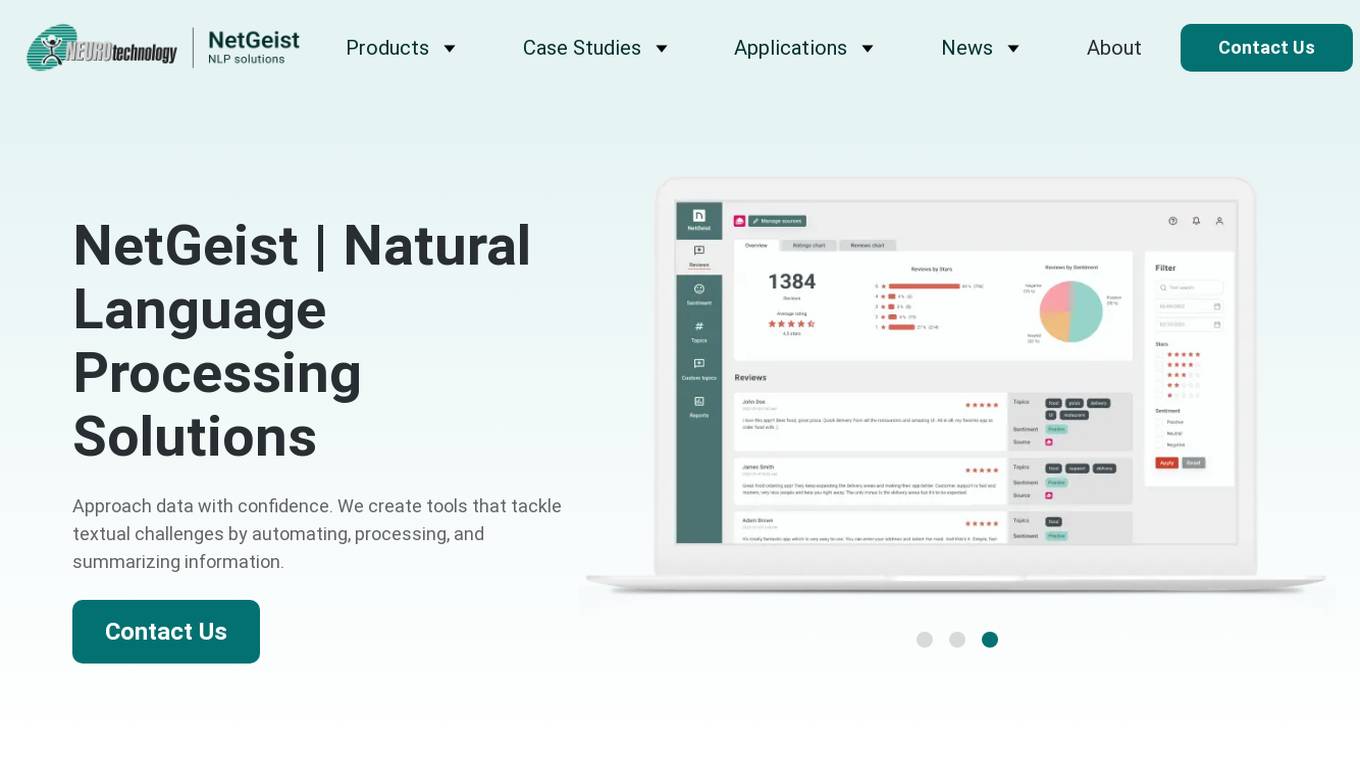
NetGeist
NetGeist is an AI tool that offers Natural Language Processing solutions to tackle textual challenges by automating, processing, and summarizing information. It provides various applications such as app review tracking, HR strategy shaping, stock market sentiment analysis, and custom chatbots. NetGeist aims to create tailor-made NLP solutions for different industries, leveraging AI technologies to enhance workflow efficiency and decision-making processes.
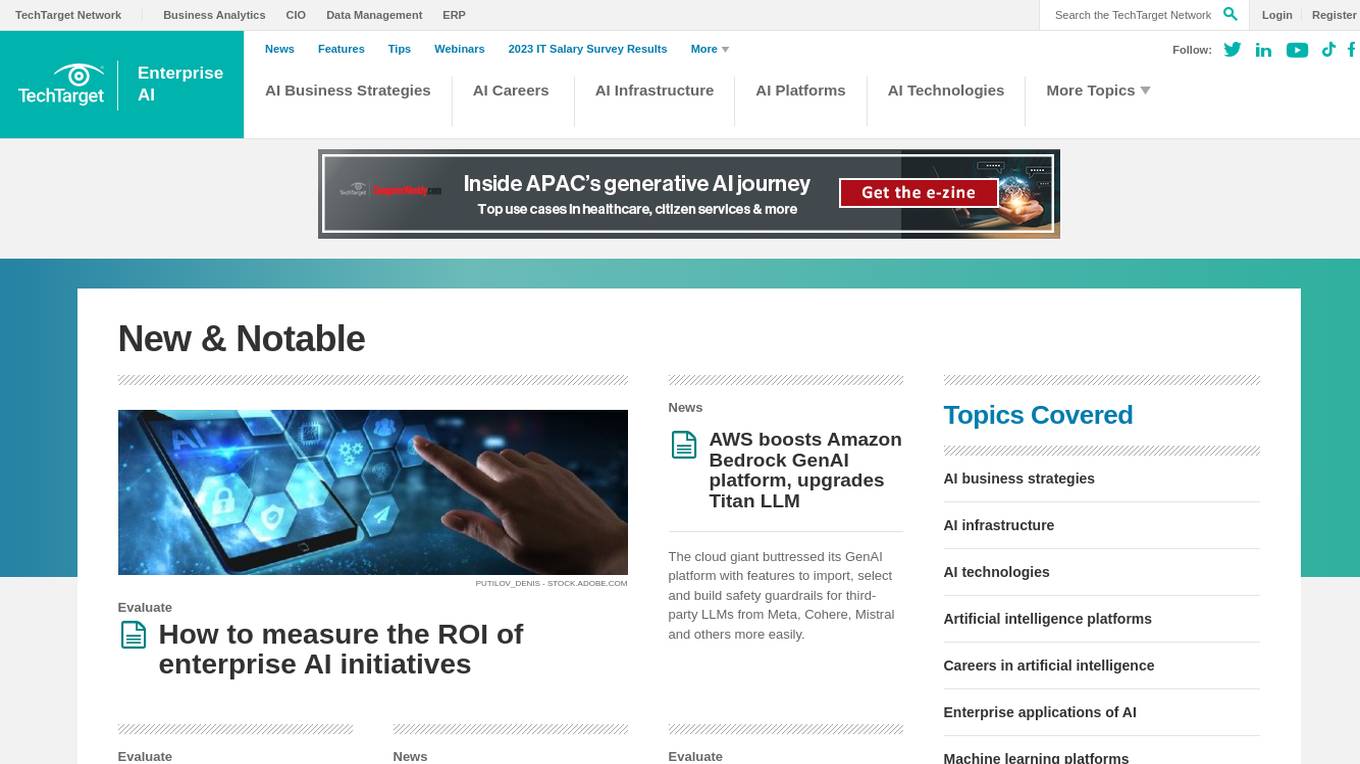
Enterprise AI
Enterprise AI provides comprehensive information, news, and tips on artificial intelligence (AI) for businesses. It covers various aspects of AI, including AI business strategies, AI infrastructure, AI technologies, AI platforms, careers in AI, and enterprise applications of AI. The website offers insights into the latest AI trends, best practices, and industry news. It also provides resources such as e-books, webinars, and podcasts to help businesses understand and implement AI solutions.

John McCarthy's Website
This website is dedicated to the life and work of Professor John McCarthy, a legendary computer scientist and the father of Artificial Intelligence. It includes his social commentary, acknowledgements of his outstanding contributions and impact, and a collection of his work. Visitors are encouraged to share their comments, suggestions, stories, photographs, and videos on John and his work.

Freeplay
Freeplay is a tool that helps product teams experiment, test, monitor, and optimize AI features for customers. It provides a single pane of glass for the entire team, lightweight developer SDKs for Python, Node, and Java, and deployment options to meet compliance needs. Freeplay also offers best practices for the entire AI development lifecycle.
1 - Open Source AI Tools
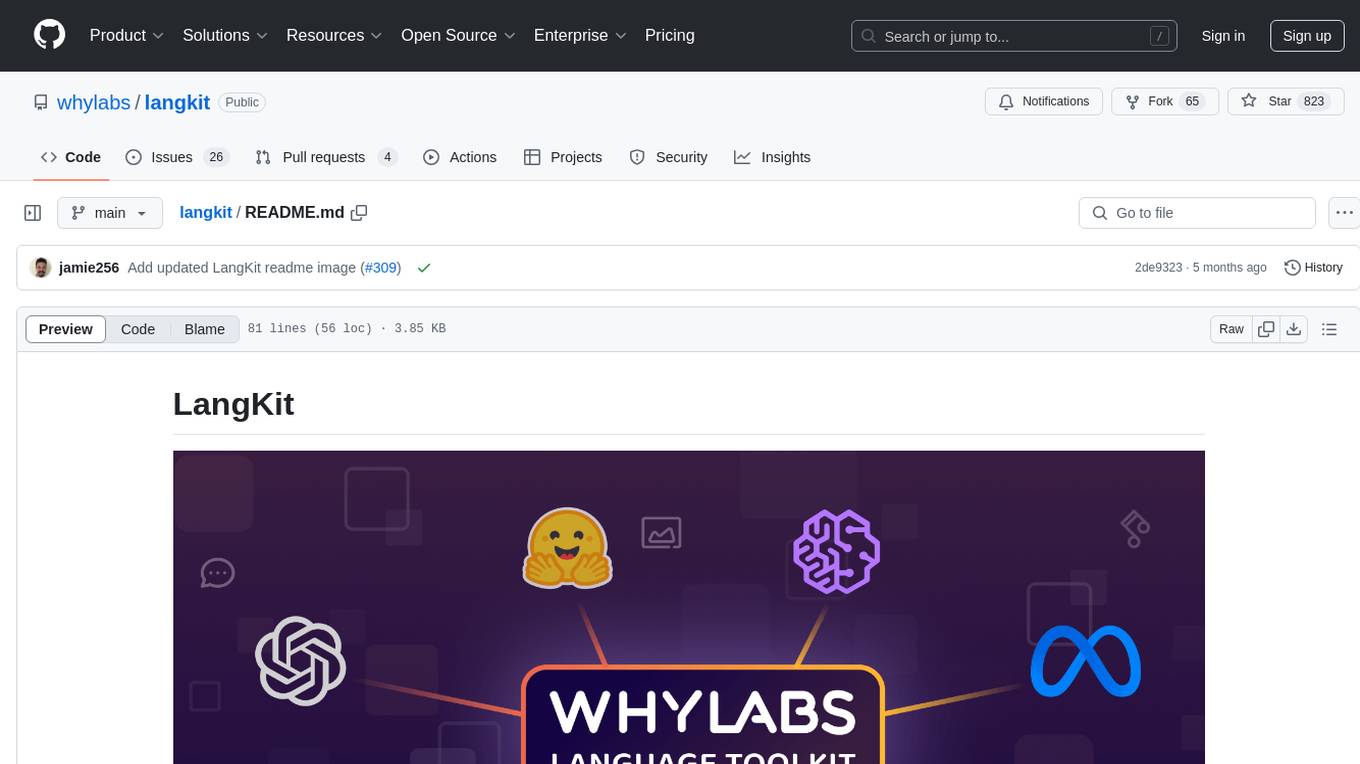
langkit
LangKit is an open-source text metrics toolkit for monitoring language models. It offers methods for extracting signals from input/output text, compatible with whylogs. Features include text quality, relevance, security, sentiment, toxicity analysis. Installation via PyPI. Modules contain UDFs for whylogs. Benchmarks show throughput on AWS instances. FAQs available.
20 - OpenAI Gpts
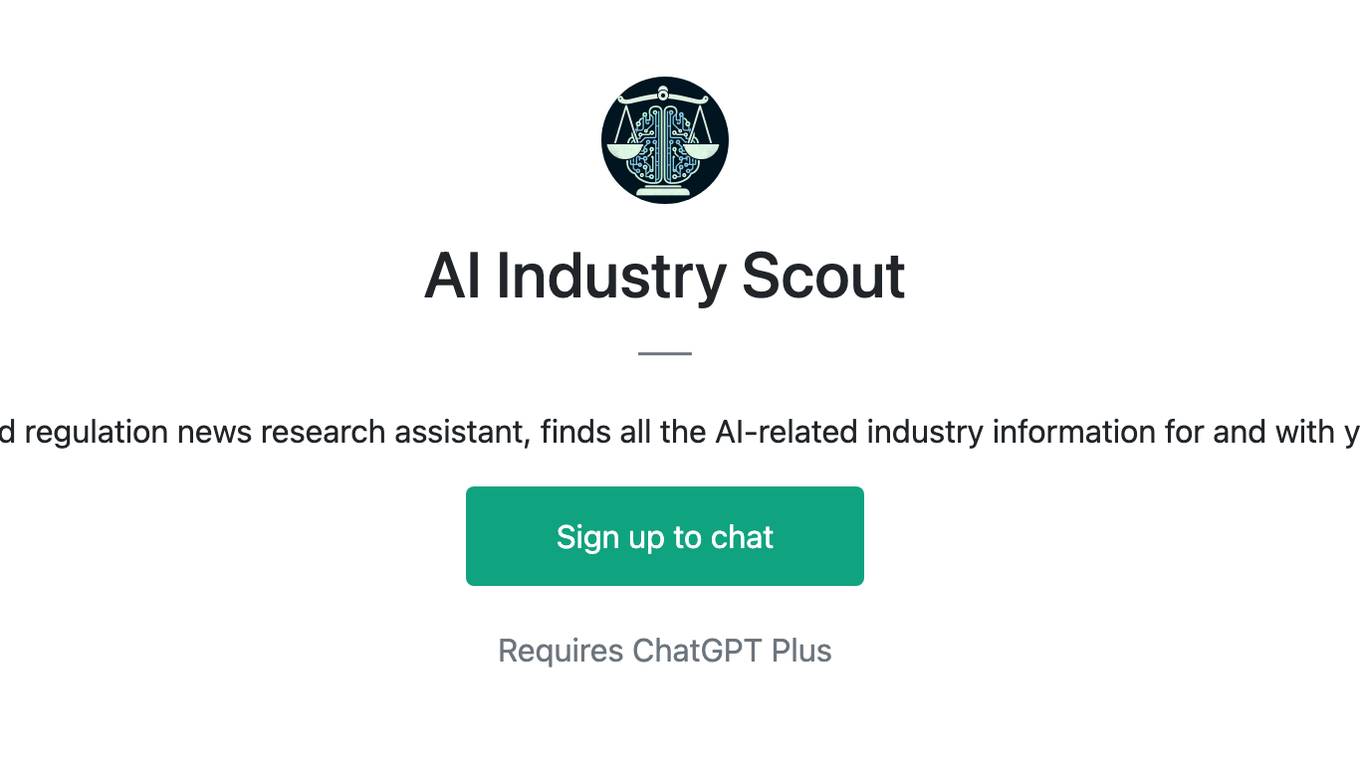
AI Industry Scout
AI and regulation news research assistant, finds all the AI-related industry information for and with you.
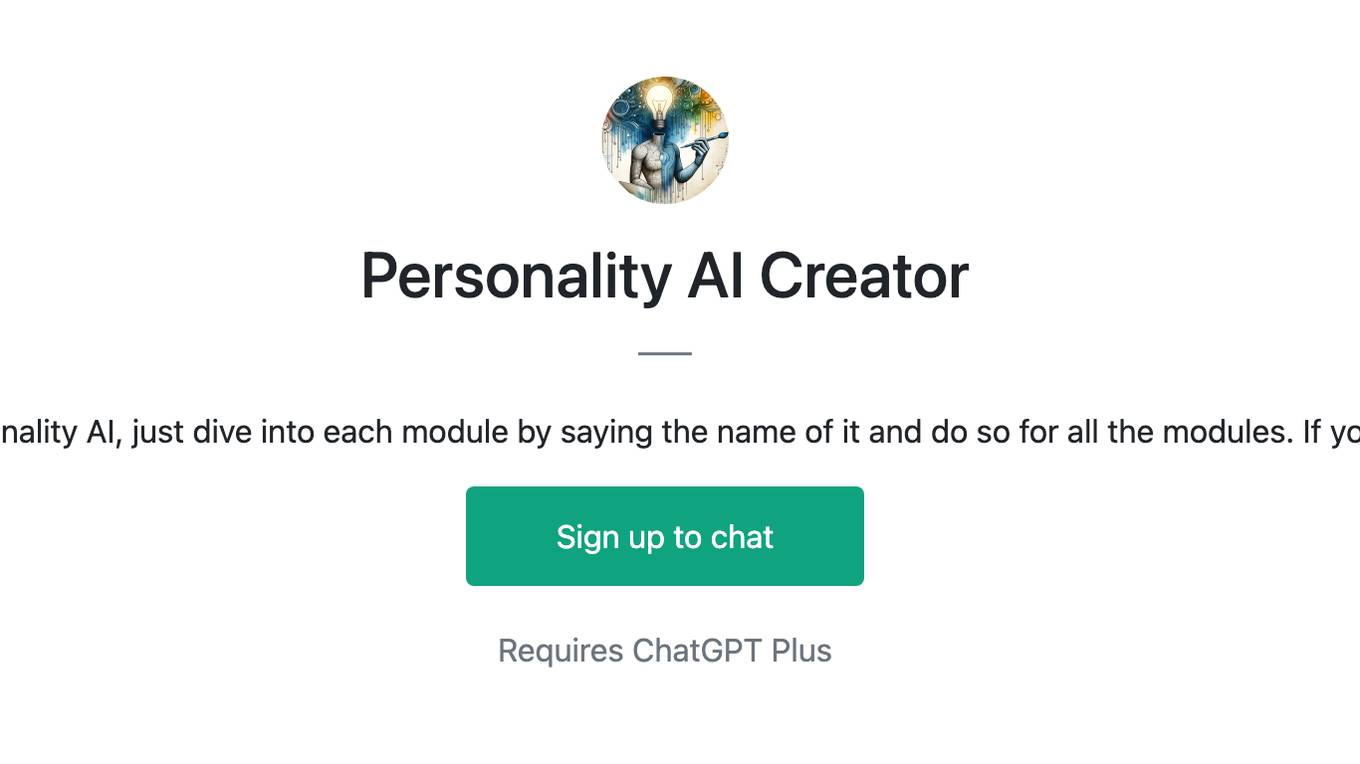
Personality AI Creator
I will create a quality data set for a personality AI, just dive into each module by saying the name of it and do so for all the modules. If you find it useful, share it to your friends
![GPTComplianceChecker[Aifrontier.info] Screenshot](/screenshots_gpts/g-KxkjmsQuW.jpg)
GPTComplianceChecker[Aifrontier.info]
ComplianceChecker simplifies and explains the terms and policies of platforms like Facebook, TikTok, and YouTube for compliance purposes.

Quake and Volcano Watch Iceland
Seismic and volcanic monitor with in-depth data and visuals.
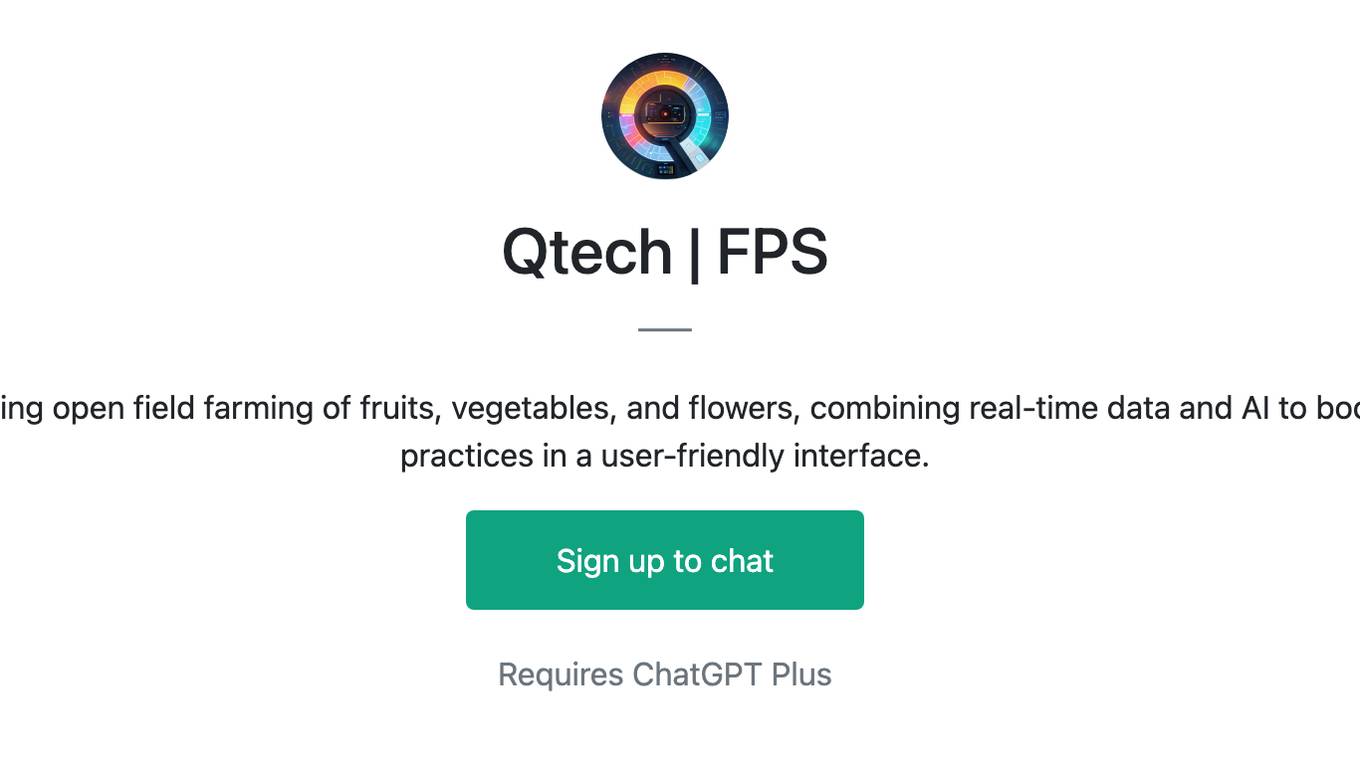
Qtech | FPS
Frost Protection System is an AI bot optimizing open field farming of fruits, vegetables, and flowers, combining real-time data and AI to boost yield, cut costs, and foster sustainable practices in a user-friendly interface.
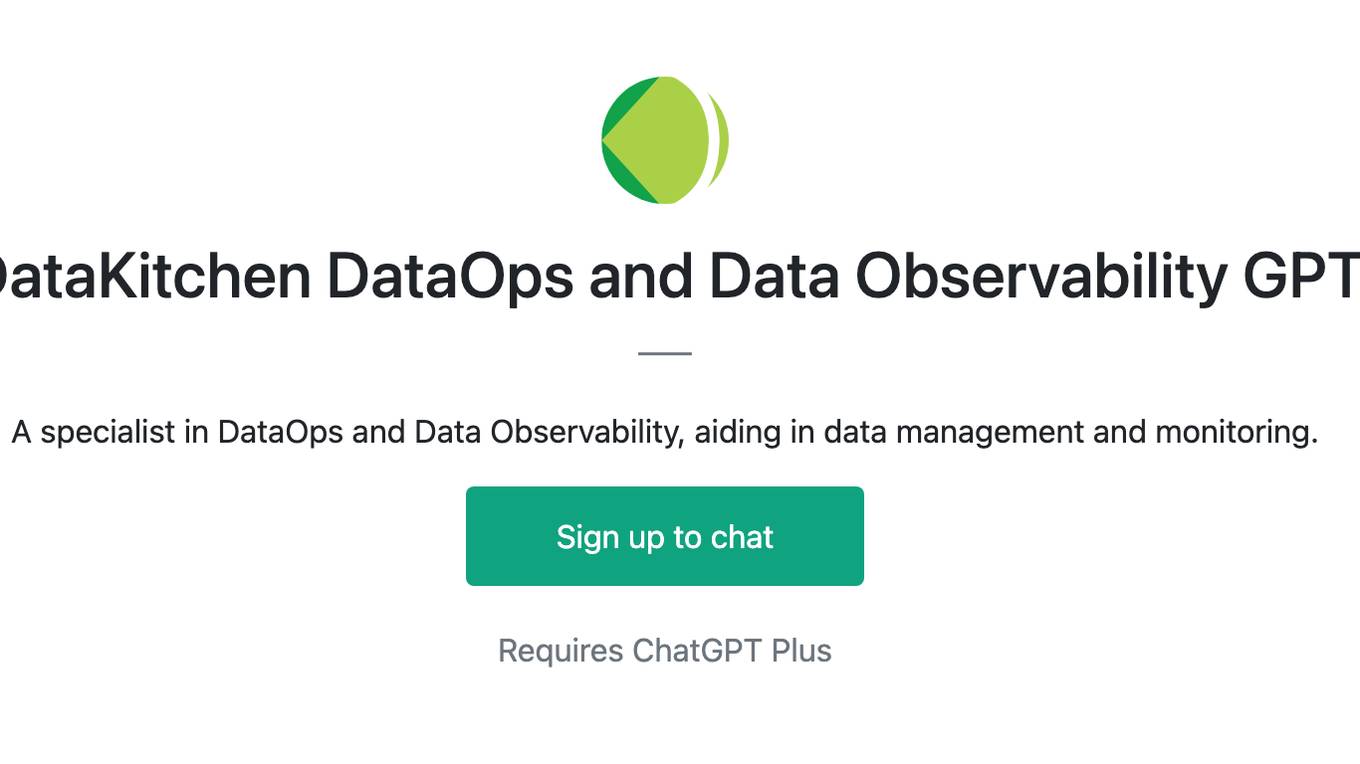
DataKitchen DataOps and Data Observability GPT
A specialist in DataOps and Data Observability, aiding in data management and monitoring.

Financial Cybersecurity Analyst - Lockley Cash v1
stunspot's advisor for all things Financial Cybersec

